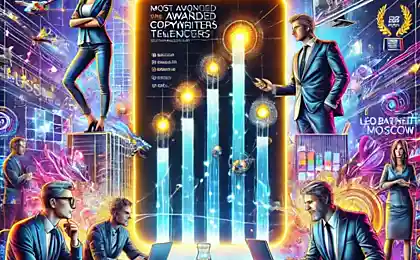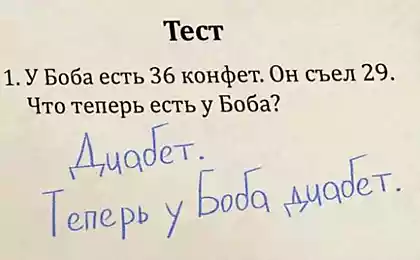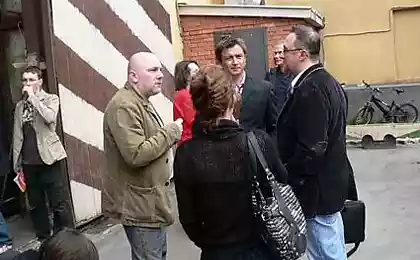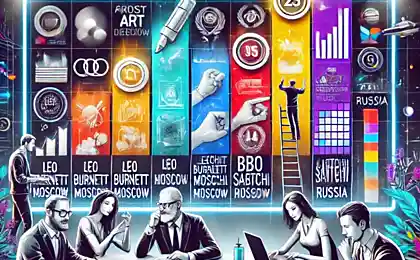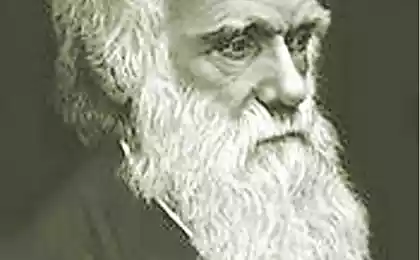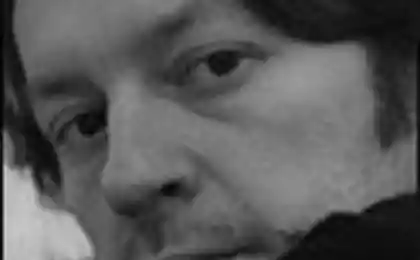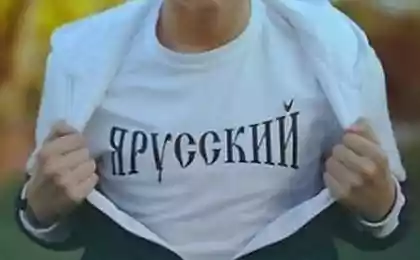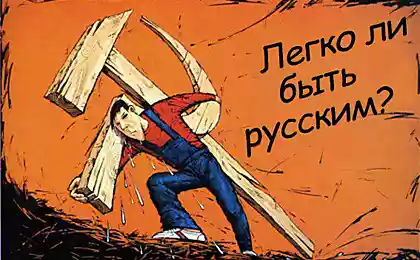557
The award "Educator" — the main Russian-language non-fiction books of the year
Fifty three million seven hundred thirty nine thousand eight hundred sixty five
© Vincent Fournier
Humanities
Olga Weinstein. "Dandy: fashion, literature, lifestyle"
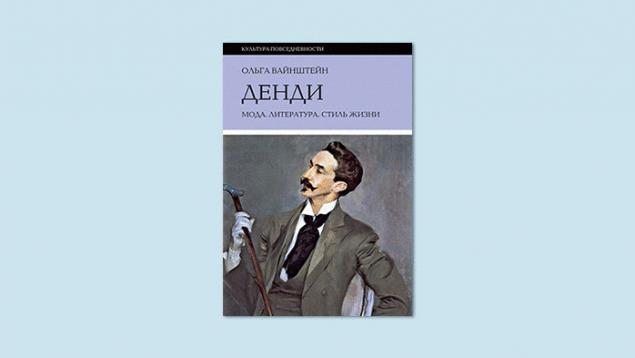
The only one in the list of the book, which has long been familiar to us, — the last, in 2012, came the third edition. Olga Weinstein has long been a history of costume, fashion theory, and semiotics disgusting and beautiful, it is, for example, collected for the same UFO solid two-volume book "the Flavors and smells of culture." The book is about a dandy, though, and talks about very frivolous things (there is, for example, the passage about how in the rain, sitting in the club, dandy bet three thousand pounds on which the first drop drips on the glass), was very serious. It is, of course, not about style, but about the code of conduct. In fact, this is a story about what a fad is not always a sign of eccentricity, fashionable vests and impeccable costumes was invented by the first dandies to organize and hold crumbling right before their eyes world. "Virtuoso hameleonstvo" dandyism: socks on a half-tone darker than the suit and the cuffs of his shirt peeking out from the jacket sleeve, exactly two centimeters, can be a sign of social superiority: "While police neutralised a terrorist, Prince Charles, without leaving his seat, calmly adjusted the cuffs of his shirt". In addition, the book of Olga Weinstein you can find a lot of illustrations.
Quote: "However, dandy is not just dresses "always in fashion", he largely creates it, as a leader of fashion. His manners are subject to the special code of conduct, his suits were only part of the overall sound system. And in this it differs from the countless imitators — this is the maximum structural identity, secular lion, snob, keep your distance: every movement is a sign of artistic superiority".
Paul Fields. "Scrolls from the ashes. The Jewish "Sonderkommando" in Auschwitz-Birkenau and its chroniclers"
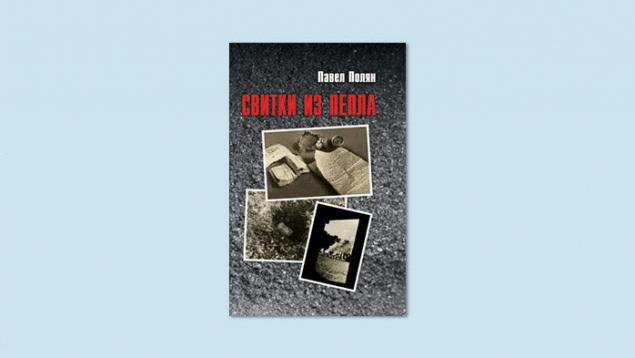
The "Sonderkommando" — the author specifically calls them exactly with a double "m" so that the reader does not confuse them with the Nazis is work teams, which in Auschwitz were selected from prisoners in the camp of the Jews and forced to participate in the destruction. They got the worst thing: to lead the people into the gas chambers, to remove the ashes, collect the gold teeth and women's hair. In camp it was designed to protect its from dirt of death. A chance to survive this work was two thousand escaped a little over a hundred people. But those who were selected in the "Sonderkommando", considered it their duty to preserve and transmit to future generations the memory of the experience. They were small diaries, which after writing were burned not far from the camp. Nine of these manuscripts that have been found, form the basis of this book. In addition to them: news, documents and, in fact, the history of the "Sonderkommando", organized their uprising on 6 October 1944 and great conversation about why these people so diligently forgotten and, in spite of their terrible work, considers them heroes: "the Question is: is it possible at all to keep the camp sacrificial "innocence"? Each of the right lane on the ramp is to blame for the fact that was not left, because only these victims — the purest of pure. All the others, if survived until liberation, must have done some "fall of man". Survived so pander survived — so guilty".
Quote: "Dear Nahodkin, looking everywhere. On each piece square. There are (buried) dozens of my and other documents that will throw light on everything that happened here happened. Also buried here are many of the teeth. It is we, the laborers, and purposely scattered as it was possible for square to the world found live tracks million dead".
Adelaide Svanidze. "Vikings. The people of Saga: the life and morals"
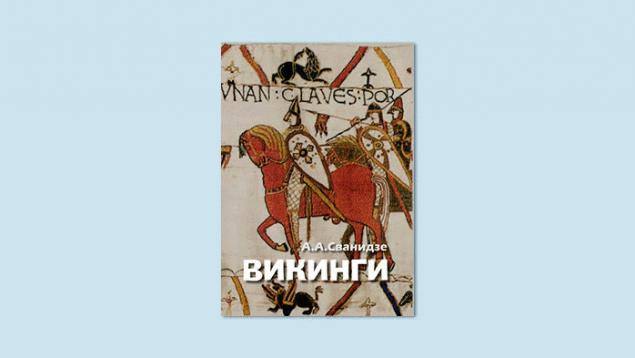
The book is as voluminous as the amount of material that had to dig the author, Professor of the history Department of Moscow state University, scientific head of the Department of Western European middle Ages and early modern times at the Institute of General history Russian Academy of Sciences. Unlike many researchers in the Vikings, Adelaide Svanidze is interested not so much their foreign trips, as their way of life, which, for lack of a more documentary sources, recreates on the oral sagas. This is one of those works, which require a whole life, and such work is not often seen. Despite the fact that Adelaide A. quite imagines that her book will likely not read as many historians, how many passionate Vikings fans, the book itself seems to be an ideal material for historical reconstructions: the heaviness of the style kompensiruet comprehensive specifics of the details.
Quote: "Dedicating his life to the study of the history of medieval society, organization of people's lives, I had the opportunity to ensure that the past does not let neither man nor humanity. Imperiously intruding into current life, I am now a strange, seemingly repetitions of long experience. It is from these constant repeats of surprisingly similar situations, the institutions, the UPS and downs of individuals, tribes, Nations and empires were born, apparently, a common saying: "the Lessons of history do not teach anything..." I Dare say that it's wrong."
Sergey Yarov. "Daily life of the besieged Leningrad"

A small but important book breaks another (in this list — after the "Sonderkommando" at Auschwitz) conspiracy of silence when gradually start talking about what actually happened in the besieged Leningrad. Book Yarova based on the testimonies and diaries of eyewitnesses, which included photos from the chronicle. But the documentary does not make reading it less scary, quite the contrary. And she helps the author to stay away, on the contrary, he constantly compassionately and passionately present in the text, from the Preface by reminding that his book, unlike other books of the same series, it is not the encyclopedia of life, and the story "the tragedy and human suffering", a story of heroism, "the fresco of the martyrdom" and the people, in spite of all the remaining people.
Quote: "this city is helpless against attacks and raids, crippled and wounded, but the ruins and outlining its limits, that no one could cross. These people — swollen, staggering, looking for the bread crumbs, tormented by hunger and cold, have forgotten how to cry — but the rest of the people."
Science
Gennady Gorelik. "Who invented modern physics? From the Galilean pendulum to quantum gravitation"
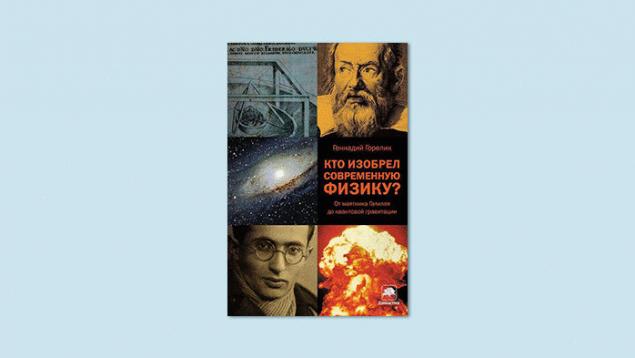
Very popular — with anecdotes — a story about how physics has it in your pants, Archimedes, and took the leap to quantum theory. It is, in fact, most will appreciate the enthusiastic high school students, but a clear and simple syllable makes reading it, is impossible to put down. That is, there is nothing to understand in physics, and Gorelik will understand. In fact, it is not a list of discoveries, and the story about the discoverers, where each new theory becomes a success story of another scientist. Especially bright heads here and about Sakharov, and Landau, which is not surprising, because each of these scientists Gennady Gorelik had already written in a separate book.
Quote: "Another method to study the free fall Galileo was born in the Church, but not in connection with the fall of eve. During a Church service, looking over the priest, he found a surprising phenomenon. At the top hung a chandelier and swung — by the will of draught — the stronger, the weaker. Galileo compared the duration of a single oscillation, the measuring time is beats of his own pulse and found that a large fluctuation chandeliers lasts as much as small".
Sergey Izhevsk, Andrei Lobanov, Alexander Sosnin. "The wonderful life of bugs"
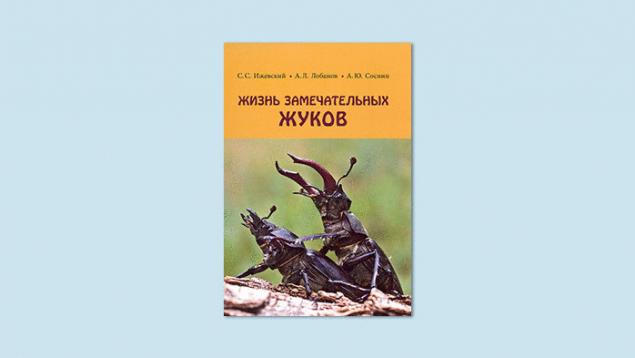
A charming book written by a group of biologists and enthusiasts, claims to be from the first phrase — "it is difficult to imagine that many citizens lived a life without seeing a single bug." It seems that in the short-list she came primarily for the passion narrative. The Chairman of the jury, President of the Polytechnic Museum Boris Saltykov, on the announcement of the shortlisted admitted that he would have replaced it with a work of Boris Gorobets "Nuclear revenge of the Soviet Union: the history of the Soviet atomic project". But in vain — because it is passion and should be the basis of enlightenment. And that this is so carefully thought out and assembled the book with beautiful illustrations (hand-drawn table of the beetles, it seems, able to charm even insectophobia), with fantastic macro photography was not of the publisher and the authors had to produce it at his own expense is actually a shame. So attention premiums should be the authors with sufficient comfort. It is important to add, however, that she deserves, first of all, just another attention — such books are just designed to drive students crazy.
Quote: "But nothing is given in vain: for economical flying beetles pay slow take-off: they need time to install the wing into position and spreading membranous wings, which in repose are folded from them several times. However, there are no rules without exceptions. Bronzovoi and some dung beetles have adapted not to raise the elytra — they release the wings in a special side slit in the elytra. This gives them the advantage of a rapid rise and more manoeuvrable flight. The lifting force here is not to form elytra, and all the convex body of the beetle. Finally, there are the bugs that learned to fly at lightning speed. The horses and some jewel beetles (especially if they are well-heated in the sun) the speed of the take-off was not worse than the flies, and catch them by hand is very difficult."
Asya Kazantsev. "Who would have thought? How the brain makes us do stupid things"
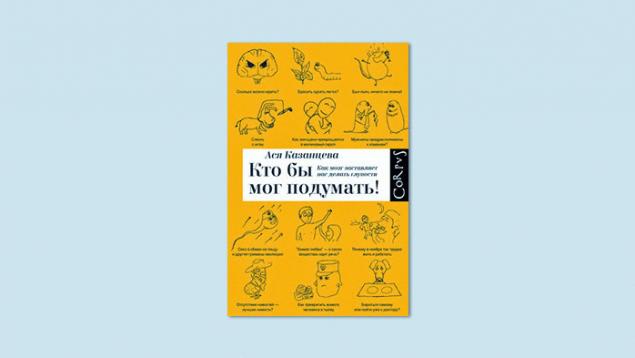
Books about how the brain coming out lately, some incredible number, this one is Russian. And one of the few not written lightly pokopavshis in the subject as a journalist and an expert biologist. Asya Kazantseva generally notable popularizer of science: programmes on TV, writes articles in the gloss, and scientific publications. There is, however, another important difference her books from most of the bills — they explain to the reader the "rules of the brain" that has achieved success, and Kazantsev writes more about the world of emotions: dependency, depression and, of course, sex. Written all this delightful — to see this, it suffices to read an excerpt from the book.
Quote: "If you feel that your husband loves you enough, then you can reassure yourself that he might be a mutant and not able to love in principle — as polygamous vole".
Boris Shtern. "Breakthrough over the edge of the world"
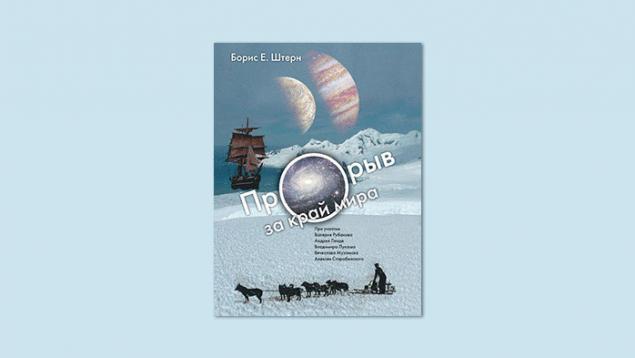
With all due respect to the other nominees, perhaps the most important book list. Doctor of mathematical Sciences, leading researcher of the Institute for nuclear research, Russian Academy of Sciences and chief editor of the newspaper "Troitsky variant — Science" Boris Shtern tells about the theory of inflation that changed our understanding of modern cosmology, interspersing the conversation an interview with a fellow who took not the last part in the creation of this theory. "We live in an age of cosmological discoveries!" — and then I repeat it and to his opponents, but, alas, it does not mean that every person on earth is exactly the same as "the Earth is round", I'm sure that he and we all come from quantum fluctuations. So is it a story that every decent person should know about space and the Universe. Here is a place for formula, and for a fantastic (actually not quite) assumptions: for example, that under the ice of the second satellite of Jupiter, Europa, live intelligent beings, evropiane — because the laws of thermodynamics it is not contradictory. How they look, what they're capable of, what their understanding of the Universe? And how our ideas about the Universe richer and deeper?
Quote: "Recall a Big explosion long ago has become as obvious as the sphericity of the Earth. However, the Big Bang theory had a very vague direction: the initial conditions. They led to a surprising uniformity in cause-related areas, to a giant size, "flat" geometry and provided a huge content. The initial conditions were made by the carpet, which had to cover up the basic problems of cosmology. And it seemed that the question about initial conditions is in terms of science not resolved soon, it's probably more a question for the philosophers or, God forgive me, theologians. It turned out that this damn issue is solved with the same force of nature that gave to the Earth a spherical shape, the gravity. Not only in her tending of the incarnation, and repulsive. It was certainly a breakthrough."
Source: theoryandpractice.ru
© Vincent Fournier
Humanities
Olga Weinstein. "Dandy: fashion, literature, lifestyle"

The only one in the list of the book, which has long been familiar to us, — the last, in 2012, came the third edition. Olga Weinstein has long been a history of costume, fashion theory, and semiotics disgusting and beautiful, it is, for example, collected for the same UFO solid two-volume book "the Flavors and smells of culture." The book is about a dandy, though, and talks about very frivolous things (there is, for example, the passage about how in the rain, sitting in the club, dandy bet three thousand pounds on which the first drop drips on the glass), was very serious. It is, of course, not about style, but about the code of conduct. In fact, this is a story about what a fad is not always a sign of eccentricity, fashionable vests and impeccable costumes was invented by the first dandies to organize and hold crumbling right before their eyes world. "Virtuoso hameleonstvo" dandyism: socks on a half-tone darker than the suit and the cuffs of his shirt peeking out from the jacket sleeve, exactly two centimeters, can be a sign of social superiority: "While police neutralised a terrorist, Prince Charles, without leaving his seat, calmly adjusted the cuffs of his shirt". In addition, the book of Olga Weinstein you can find a lot of illustrations.
Quote: "However, dandy is not just dresses "always in fashion", he largely creates it, as a leader of fashion. His manners are subject to the special code of conduct, his suits were only part of the overall sound system. And in this it differs from the countless imitators — this is the maximum structural identity, secular lion, snob, keep your distance: every movement is a sign of artistic superiority".
Paul Fields. "Scrolls from the ashes. The Jewish "Sonderkommando" in Auschwitz-Birkenau and its chroniclers"

The "Sonderkommando" — the author specifically calls them exactly with a double "m" so that the reader does not confuse them with the Nazis is work teams, which in Auschwitz were selected from prisoners in the camp of the Jews and forced to participate in the destruction. They got the worst thing: to lead the people into the gas chambers, to remove the ashes, collect the gold teeth and women's hair. In camp it was designed to protect its from dirt of death. A chance to survive this work was two thousand escaped a little over a hundred people. But those who were selected in the "Sonderkommando", considered it their duty to preserve and transmit to future generations the memory of the experience. They were small diaries, which after writing were burned not far from the camp. Nine of these manuscripts that have been found, form the basis of this book. In addition to them: news, documents and, in fact, the history of the "Sonderkommando", organized their uprising on 6 October 1944 and great conversation about why these people so diligently forgotten and, in spite of their terrible work, considers them heroes: "the Question is: is it possible at all to keep the camp sacrificial "innocence"? Each of the right lane on the ramp is to blame for the fact that was not left, because only these victims — the purest of pure. All the others, if survived until liberation, must have done some "fall of man". Survived so pander survived — so guilty".
Quote: "Dear Nahodkin, looking everywhere. On each piece square. There are (buried) dozens of my and other documents that will throw light on everything that happened here happened. Also buried here are many of the teeth. It is we, the laborers, and purposely scattered as it was possible for square to the world found live tracks million dead".
Adelaide Svanidze. "Vikings. The people of Saga: the life and morals"

The book is as voluminous as the amount of material that had to dig the author, Professor of the history Department of Moscow state University, scientific head of the Department of Western European middle Ages and early modern times at the Institute of General history Russian Academy of Sciences. Unlike many researchers in the Vikings, Adelaide Svanidze is interested not so much their foreign trips, as their way of life, which, for lack of a more documentary sources, recreates on the oral sagas. This is one of those works, which require a whole life, and such work is not often seen. Despite the fact that Adelaide A. quite imagines that her book will likely not read as many historians, how many passionate Vikings fans, the book itself seems to be an ideal material for historical reconstructions: the heaviness of the style kompensiruet comprehensive specifics of the details.
Quote: "Dedicating his life to the study of the history of medieval society, organization of people's lives, I had the opportunity to ensure that the past does not let neither man nor humanity. Imperiously intruding into current life, I am now a strange, seemingly repetitions of long experience. It is from these constant repeats of surprisingly similar situations, the institutions, the UPS and downs of individuals, tribes, Nations and empires were born, apparently, a common saying: "the Lessons of history do not teach anything..." I Dare say that it's wrong."
Sergey Yarov. "Daily life of the besieged Leningrad"

A small but important book breaks another (in this list — after the "Sonderkommando" at Auschwitz) conspiracy of silence when gradually start talking about what actually happened in the besieged Leningrad. Book Yarova based on the testimonies and diaries of eyewitnesses, which included photos from the chronicle. But the documentary does not make reading it less scary, quite the contrary. And she helps the author to stay away, on the contrary, he constantly compassionately and passionately present in the text, from the Preface by reminding that his book, unlike other books of the same series, it is not the encyclopedia of life, and the story "the tragedy and human suffering", a story of heroism, "the fresco of the martyrdom" and the people, in spite of all the remaining people.
Quote: "this city is helpless against attacks and raids, crippled and wounded, but the ruins and outlining its limits, that no one could cross. These people — swollen, staggering, looking for the bread crumbs, tormented by hunger and cold, have forgotten how to cry — but the rest of the people."
Science
Gennady Gorelik. "Who invented modern physics? From the Galilean pendulum to quantum gravitation"

Very popular — with anecdotes — a story about how physics has it in your pants, Archimedes, and took the leap to quantum theory. It is, in fact, most will appreciate the enthusiastic high school students, but a clear and simple syllable makes reading it, is impossible to put down. That is, there is nothing to understand in physics, and Gorelik will understand. In fact, it is not a list of discoveries, and the story about the discoverers, where each new theory becomes a success story of another scientist. Especially bright heads here and about Sakharov, and Landau, which is not surprising, because each of these scientists Gennady Gorelik had already written in a separate book.
Quote: "Another method to study the free fall Galileo was born in the Church, but not in connection with the fall of eve. During a Church service, looking over the priest, he found a surprising phenomenon. At the top hung a chandelier and swung — by the will of draught — the stronger, the weaker. Galileo compared the duration of a single oscillation, the measuring time is beats of his own pulse and found that a large fluctuation chandeliers lasts as much as small".
Sergey Izhevsk, Andrei Lobanov, Alexander Sosnin. "The wonderful life of bugs"

A charming book written by a group of biologists and enthusiasts, claims to be from the first phrase — "it is difficult to imagine that many citizens lived a life without seeing a single bug." It seems that in the short-list she came primarily for the passion narrative. The Chairman of the jury, President of the Polytechnic Museum Boris Saltykov, on the announcement of the shortlisted admitted that he would have replaced it with a work of Boris Gorobets "Nuclear revenge of the Soviet Union: the history of the Soviet atomic project". But in vain — because it is passion and should be the basis of enlightenment. And that this is so carefully thought out and assembled the book with beautiful illustrations (hand-drawn table of the beetles, it seems, able to charm even insectophobia), with fantastic macro photography was not of the publisher and the authors had to produce it at his own expense is actually a shame. So attention premiums should be the authors with sufficient comfort. It is important to add, however, that she deserves, first of all, just another attention — such books are just designed to drive students crazy.
Quote: "But nothing is given in vain: for economical flying beetles pay slow take-off: they need time to install the wing into position and spreading membranous wings, which in repose are folded from them several times. However, there are no rules without exceptions. Bronzovoi and some dung beetles have adapted not to raise the elytra — they release the wings in a special side slit in the elytra. This gives them the advantage of a rapid rise and more manoeuvrable flight. The lifting force here is not to form elytra, and all the convex body of the beetle. Finally, there are the bugs that learned to fly at lightning speed. The horses and some jewel beetles (especially if they are well-heated in the sun) the speed of the take-off was not worse than the flies, and catch them by hand is very difficult."
Asya Kazantsev. "Who would have thought? How the brain makes us do stupid things"

Books about how the brain coming out lately, some incredible number, this one is Russian. And one of the few not written lightly pokopavshis in the subject as a journalist and an expert biologist. Asya Kazantseva generally notable popularizer of science: programmes on TV, writes articles in the gloss, and scientific publications. There is, however, another important difference her books from most of the bills — they explain to the reader the "rules of the brain" that has achieved success, and Kazantsev writes more about the world of emotions: dependency, depression and, of course, sex. Written all this delightful — to see this, it suffices to read an excerpt from the book.
Quote: "If you feel that your husband loves you enough, then you can reassure yourself that he might be a mutant and not able to love in principle — as polygamous vole".
Boris Shtern. "Breakthrough over the edge of the world"

With all due respect to the other nominees, perhaps the most important book list. Doctor of mathematical Sciences, leading researcher of the Institute for nuclear research, Russian Academy of Sciences and chief editor of the newspaper "Troitsky variant — Science" Boris Shtern tells about the theory of inflation that changed our understanding of modern cosmology, interspersing the conversation an interview with a fellow who took not the last part in the creation of this theory. "We live in an age of cosmological discoveries!" — and then I repeat it and to his opponents, but, alas, it does not mean that every person on earth is exactly the same as "the Earth is round", I'm sure that he and we all come from quantum fluctuations. So is it a story that every decent person should know about space and the Universe. Here is a place for formula, and for a fantastic (actually not quite) assumptions: for example, that under the ice of the second satellite of Jupiter, Europa, live intelligent beings, evropiane — because the laws of thermodynamics it is not contradictory. How they look, what they're capable of, what their understanding of the Universe? And how our ideas about the Universe richer and deeper?
Quote: "Recall a Big explosion long ago has become as obvious as the sphericity of the Earth. However, the Big Bang theory had a very vague direction: the initial conditions. They led to a surprising uniformity in cause-related areas, to a giant size, "flat" geometry and provided a huge content. The initial conditions were made by the carpet, which had to cover up the basic problems of cosmology. And it seemed that the question about initial conditions is in terms of science not resolved soon, it's probably more a question for the philosophers or, God forgive me, theologians. It turned out that this damn issue is solved with the same force of nature that gave to the Earth a spherical shape, the gravity. Not only in her tending of the incarnation, and repulsive. It was certainly a breakthrough."
Source: theoryandpractice.ru

